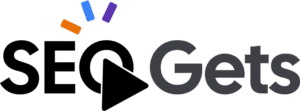-
Unified Master Dashboard: A single interface that consolidates all Google Search Console properties. Clicks and impressions for every site appear on one page, removing the need to switch accounts.
-
Access to 50,000 Rows of Data: Expansion of GSC’s 1,000-row cap into 50,000 rows. Broader visibility supports detailed analysis and stronger SEO decision-making.
-
Content Groups: Related pages such as blog posts or landing pages can be grouped for collective performance analysis. Patterns become easier to track, guiding optimization.
-
Topic Cluster Tracking: Real data monitors keyword performance across clicks, pages, and queries. Insights help measure SEO strategy effectiveness and adjust quickly.
-
Branded vs. Non-Branded Keyword Filtering: One-click filtering distinguishes branded queries from non-branded. Clear separation highlights brand awareness compared to organic growth.
-
Striking Distance Reports: Keywords close to first-page ranking are flagged. Priority content updates for these queries boost visibility and traffic.
-
Content Decay Heatmap: Color-coded visuals show performance changes over time. Pages in decline become easy to spot and update.
-
Multi-Query & Multi-Page Conditional Filtering: Point-and-click filtering across multiple queries and pages without regex. Granular control isolates key insights faster.
-
Cannibalization Reports: Detection of keyword overlap across multiple pages. Consolidation opportunities strengthen site authority.
-
PAA & Long Tail Keyword Filtering: Discovery of low-competition, high-intent queries. Insights uncover gaps that attract qualified traffic.
-
Weekly and Monthly Views: Trend reporting beyond daily data. Seasonal and long-term patterns become clearer for strategic planning.
-
Combined Portfolio Metrics: Aggregated data across multiple websites. A unified view supports client or stakeholder reporting.
-
SEO Testing: Hypotheses, success metrics, and results tracked for experiments like title or content changes. A structured process refines strategies.
-
Annotations & Core Updates: Google updates and custom notes overlay performance graphs. Context explains ranking shifts and informs action.
-
Privacy Blur: A secure way to hide URLs in screenshots or videos. Sensitive details remain protected when sharing analytics.
-
Shareable Magic Links: Secure, real-time links for sharing analytics with stakeholders. Collaboration stays aligned without account logins.
-
CTR Benchmark Report: Comparison of site click-through rates against industry averages. Underperforming areas guide title and description improvements.
-
Extended Historical Data (Optional Add-On): Storage of up to five years of data instead of GSC’s 16-month limit. Extended history supports deeper trend analysis.
-
Query Counting: Tracking of keyword visibility beyond the 1,000-row limit. Broader coverage shows algorithm impacts and performance growth.
-
Mobile App Experience: A mobile-friendly version of GSC set up in under a minute without downloads. Performance tracking stays accessible on the go.

